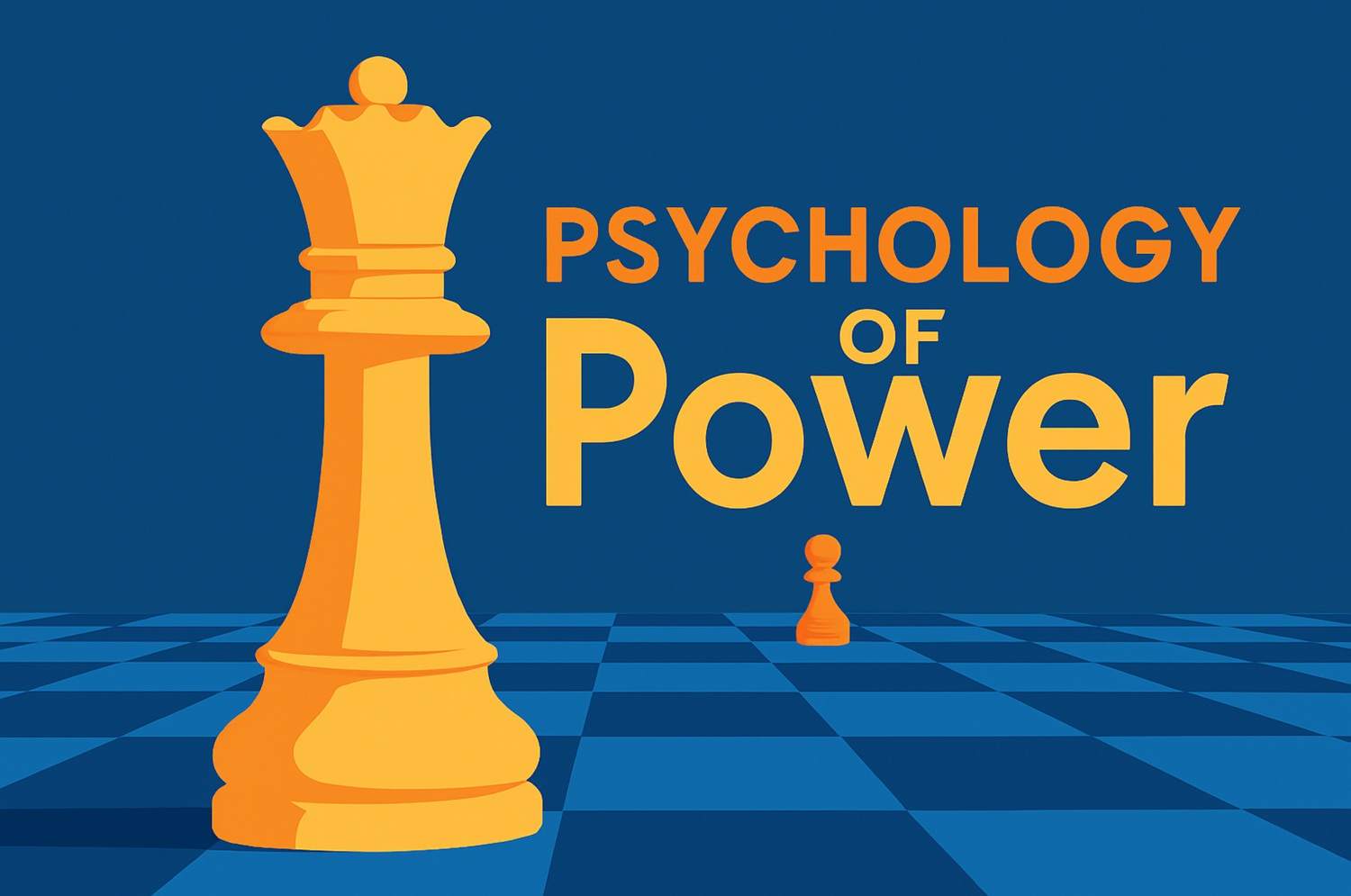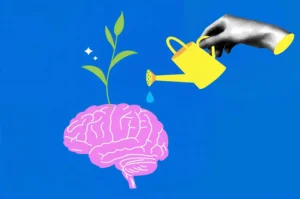Psychology isn’t just for therapists or academics — it’s a powerful tool you use every day. From improving relationships to making smarter decisions, psychology helps decode what drives us. In this beginner-friendly guide, we’ll explore how the power of psychology can improve your personal and professional life.
Table of Contents
ToggleWhat Is Psychology and Why Does It Matter?
A Simple Definition for Beginners
Psychology is the scientific study of the human mind and behavior. At its core, it seeks to understand how people think, feel, and act in various situations. While it’s often associated with therapy or mental illness, psychology goes far beyond that—it covers learning, motivation, emotions, personality, development, and even how groups influence individual choices.
For beginners, think of psychology as a toolbox: it helps us better understand ourselves and others, offering insights into everything from decision-making to stress management.
Common Misconceptions About Psychology
Psychology often suffers from myths and misunderstandings. Here are a few common ones:
- “Psychology is just common sense.”
In reality, psychological research often debunks what people think is common sense. It’s rooted in data and scientific methods, not assumptions. - “Psychologists can read minds.”
Despite what movies portray, psychology isn’t about telepathy—it’s about observing behavior and making informed interpretations. - “It only deals with mental illness.”
While mental health is a part of it, psychology also explores happiness, creativity, performance, learning, and more.
Understanding these myths is crucial. They not only misrepresent the field but also prevent people from recognizing how valuable psychology truly is in daily life.
The Everyday Relevance of Psychological Science
Psychology isn’t limited to clinics or classrooms—it touches every aspect of your life:
- At work: Helps improve leadership, motivation, and communication.
- In relationships: Offers tools for empathy, conflict resolution, and emotional intelligence.
- For personal growth: Encourages self-reflection, resilience, and mental wellness.
- In society: Informs public policies, education systems, and even marketing strategies.
By applying psychological insights, we can make better choices, build stronger connections, and create healthier environments for ourselves and others.
10 Practical Ways Psychology Impacts Your Daily Life
Meta Description: Discover how psychology silently shapes your daily life—from better decisions to stronger relationships.
1. Enhancing Emotional Intelligence
Psychology helps us recognize, understand, and manage our emotions. With emotional intelligence, you become better at handling conflicts, empathizing with others, and responding rather than reacting. This boosts your personal and professional relationships alike.
2. Improving Communication Skills
Understanding psychological cues—like body language, tone, and timing—can elevate the way you communicate. Psychology teaches you how to listen actively and express yourself clearly, making your conversations more effective and respectful.
3. Boosting Motivation and Productivity
Why do some tasks energize you while others feel draining? Psychology uncovers what drives your behavior. Whether it’s setting SMART goals, using positive reinforcement, or managing procrastination, it can give your productivity a powerful edge.
4. Strengthening Relationships
From romantic bonds to workplace dynamics, psychology reveals what builds trust and connection. Learning about attachment styles, love languages, and conflict resolution strategies can help you form deeper, healthier connections with others.
5. Making Smarter Decisions
Cognitive biases often trick us into poor decisions. Psychology equips you to recognize these mental shortcuts—like confirmation bias or the sunk cost fallacy—so you can think more rationally and choose wisely in everyday situations.
6. Managing Stress and Anxiety
Mindfulness, CBT techniques, and relaxation methods rooted in psychology offer practical ways to reduce stress. Understanding how your mind processes stress empowers you to regulate your emotions and build mental resilience.
7. Building Healthy Habits
Why do habits stick? Psychology explains the habit loop—cue, routine, reward. By hacking this cycle, you can create lasting positive routines like exercising, journaling, or eating well, even when motivation dips.
8. Understanding Social Influence
From peer pressure to advertising, psychology shows how you’re constantly influenced by others. Recognizing these forces helps you make more independent decisions and avoid being unconsciously swayed by trends or groupthink.
9. Mastering Self-Control and Willpower
Willpower isn’t just about grit—it’s about energy, focus, and psychology. Learning how to delay gratification, avoid triggers, and manage mental fatigue can strengthen your self-discipline in everything from spending to eating.
10. Achieving Personal Growth and Mindfulness
Psychology promotes self-reflection, goal-setting, and growth mindsets. Techniques like journaling, therapy, and mindfulness meditation help you become more aware of your thoughts and unlock long-term personal development.
How to Apply Psychology in Real Life (With Examples)
Using Positive Reinforcement in Parenting or Work
Positive reinforcement is one of the most powerful tools in behavioral psychology. Instead of focusing on punishment for undesired behavior, this approach emphasizes rewarding good behavior to increase its recurrence.
In parenting, this could mean praising a child for completing homework without being asked. A simple “Great job finishing your work on time!” can encourage consistency.
In the workplace, managers can apply positive reinforcement by recognizing employees’ efforts—public shoutouts during meetings, performance bonuses, or even a thank-you note. This builds morale, boosts motivation, and creates a supportive environment where people feel valued.
Real-life tip: Make the reward immediate and consistent. Reinforcement works best when feedback follows the action closely.
Setting SMART Goals With Behavioral Psychology
SMART goals—Specific, Measurable, Achievable, Relevant, and Time-bound—are grounded in psychological research on motivation and behavior change. They break down vague ambitions into concrete action steps, making goals more attainable.
For instance, instead of saying, “I want to be healthier,” you’d set a SMART goal like:
“I will walk 30 minutes every evening after work, five days a week, for the next month.”
Why this works: Behavioral psychology tells us that clarity and structure reduce mental friction, helping us stick to habits more effectively.
Pro tip: Track your progress with a habit tracker or app—it adds accountability and motivation.
Practicing Cognitive Restructuring for Mental Health
Cognitive restructuring is a technique from cognitive-behavioral therapy (CBT) that helps you identify and challenge negative thought patterns. It’s a game-changer for improving emotional resilience and mental health.
Let’s say you think, “I always mess things up.” Cognitive restructuring teaches you to question this belief: Is that really true? What’s the evidence? Then, reframe it into something balanced like: “Sometimes I make mistakes, but I also learn and improve.”
This shift isn’t just about thinking positive—it’s about thinking realistically, which reduces anxiety, depression, and self-criticism.
Myth: “Psychology is Just Common Sense”
Fact: While some psychological findings may seem like common sense after the fact, psychology relies on rigorous scientific research, peer-reviewed studies, and data-driven conclusions. Common sense is often biased by personal experience or cultural beliefs, whereas psychology uses controlled methods to uncover truths about human behavior that aren’t always obvious. For example, the bystander effect or cognitive dissonance might feel counterintuitive but are backed by decades of research.
Myth: “Therapy is Only for Mental Illness”
Fact: Therapy isn’t just for those struggling with mental disorders—it’s a valuable tool for anyone navigating life’s challenges. From stress and burnout to grief, self-esteem, or personal growth, therapy provides a safe space for reflection and resilience-building. Many high performers—entrepreneurs, athletes, and creatives—use therapy as a performance enhancer, not just a crisis tool.
Myth: “Psychologists Can Read Minds”
Fact: Psychologists are not mind readers—they’re trained professionals who use observation, conversation, and scientifically validated assessments to understand thoughts, emotions, and behavior. The goal isn’t to guess what you’re thinking but to collaboratively explore patterns, motivations, and mental processes based on evidence. Psychology is about understanding, not psychic predictions.
Conclusion: Start Using Psychology as a Life Skill
In today’s fast-paced world, understanding the fundamentals of psychology isn’t just for therapists or academics—it’s a life skill. Whether you’re navigating relationships, making career decisions, or managing your emotions, psychological insights can be your greatest ally. When you begin to recognize patterns in behavior—both your own and others’—you unlock the power to respond rather than react, to grow rather than stay stuck.
Using psychology as a life skill doesn’t mean overanalyzing everything. It means becoming more self-aware, emotionally intelligent, and intentional in how you think, feel, and act. With consistent practice, it empowers you to lead a more mindful, resilient, and fulfilling life.
Read Also:
How to Overcome Social Anxiety: A Beginner’s Guide to Beating Social Phobia
How to Deal with Depression After a Breakup: 11 Healing Steps to Rebuild Your Life
FAQ:
1. What is the power of psychology in daily life?
Psychology helps us understand behavior, manage emotions, and make better decisions in everyday situations.
2. How does psychology help improve mental health?
It provides tools to recognize patterns, build resilience, and develop healthier thoughts, emotions, and behaviors.
3. Can psychology help with career success?
Yes, psychology enhances self-awareness, motivation, stress management, and effective workplace communication skills.
4. Is psychology useful for relationships and communication?
Absolutely. It strengthens empathy, conflict resolution, listening skills, and understanding others’ needs and emotions.
5. What are the basic psychological principles every beginner should know?
Understand motivation, conditioning, perception, cognitive biases, emotional regulation, and the impact of environment on behavior.









